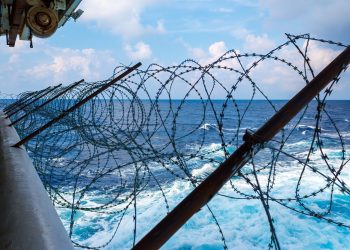Seafarers go months without seeing their families and friends while often lacking the means to contact them due to low connectivity onboard. COVID-19 has now brought more challenges to the table, with crew having to deal with sign on and off difficulties, as well as mental issues due to repatriation delays.
The adverse effects of COVID-19 pandemic reiterates calls for greater collaboration among shipping players and immediate actions. The travel restrictions, as a COVID-19 outcome, mean that some seafarers cannot leave their ships, be repatriated home, or even get urgent medical assistance.
Although the industry may be doing its best to solve this crisis, seafarers are still struggling to keep up with the new normal, having to cope with practical, mental and financial issues that have arose. Let us take a closer look:
-The practical impacts
The restrictive measures that have been put in place mean that seafarers cannot sign off, in order to ensure the health and safety of those in ports, as many have been the reports about positive cases onboard vessels.
Even though this measure aims towards the overall safety of all those working within shipping, many seafarers have seen their contracts unilaterally terminated or have been quarantined onboard ships for more than 14 days.
In other words, many are the seafarers that have been denied sign off by countries fearing the spread of coronavirus, meaning that crews could remain onboard for many additional weeks.
It should be reminded that, under the MLC, the contract limit of months spent onboard is up to 11.
-The mental impacts
Mental health remains a hot topic for the maritime sector, as now the pandemic has led to an increase of stress and anxiety, which has undermined seafarers’ mental well-being.
The feelings of isolation and abandonment rise among seafarers, while the lack of measures of communicating with family and friends has led to seafarers being stressed and concerned about their loved ones and their one health.
The recent Seafarers’ Happiness Index highlighted that seafarers lost their hope for repatriation, as there was an additional drop concerning seafarers’ shore leave, which is now an additional factor worsening seafarers’ mental health onboard.
-The financial impacts
The difficulties and uncertainties around transit and crew change have caused great hardship, both for crew unable to finish contracts and those unable to commence work. Being unable to sign off means that seafarers onshore are equally unable to sign in, which leads to great financial insecurity.
In regards to the financial status of seafarers onshore, a recent survey conducted by global maritime charity Stella Maris to a total of 363 seafarers noted that such financial worries have had a profound impact, as 69% of them said COVID-19 has impacted them financially “a lot” or “very much”.
Seafarers’ employment and office personnel situation is also heavily impacted in line with an adverse economic effect in the whole industry driven by the pandemic, which is unlikely to recover before the end of the year, an ECSA study revealed earlier in 2020.

































































